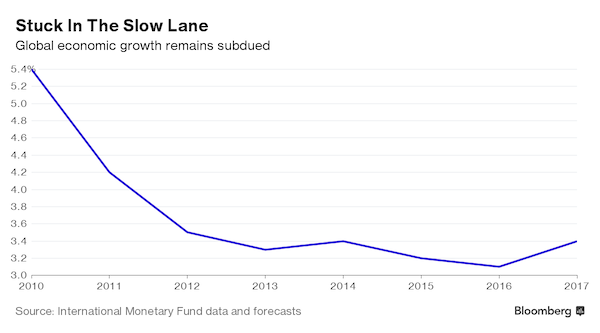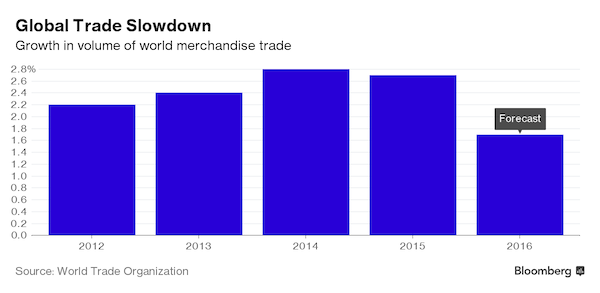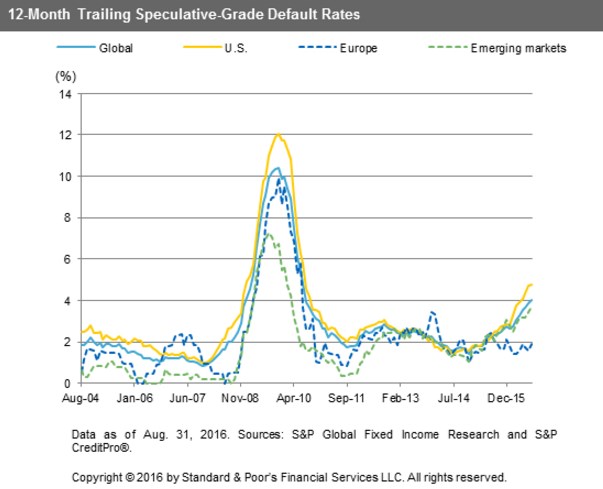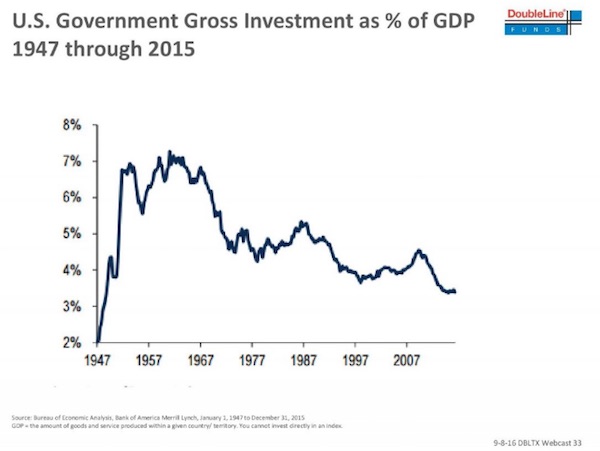
Jack Delano Bridge with 5-ton coal bucket, Milwaukee Western Fuel Co 1942

• Reported US coronavirus deaths on date:
Feb. 27: 0 deaths
Mar. 27: 1,588 deaths
Apr. 27: 56,255 deaths

• Cases 3,080,101 (+ 71,905 from yesterday’s 3,008,196)
• Deaths 212,265 (+ 4,904 from yesterday’s 207,361)

From Worldometer yesterday evening -before their day’s close-

From Worldometer – Among Closed Cases, Deaths have fallen to 19%
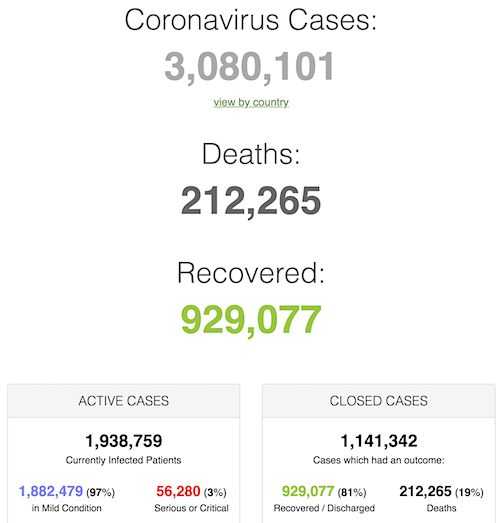
From SCMP:
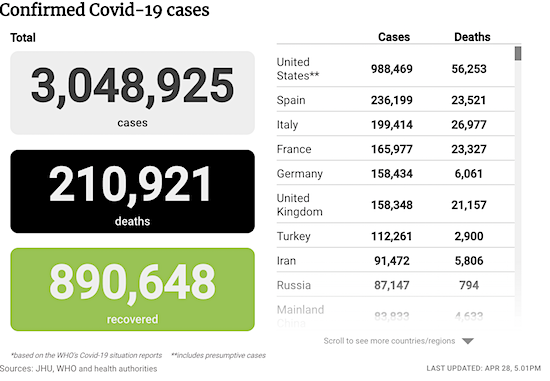
From COVID19Info.live:
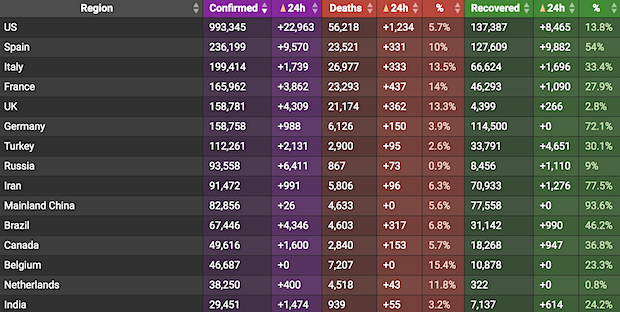

• On December 31 China and Taiwan tell WHO of “new pneumonia of unknown origin”.
• On January 30 “we declared the highest level of global emergency on Covid-19” (“Public Health Emergency of International Concern”)
• Why did WHO wait 6 more weeks, until March 11, to declare a pandemic? And isn’t that actually “the highest level of global emergency”?
• World Should Have ‘Listened Carefully’ To WHO Advice In January – Tedros (RT)
Countries that ignored the WHO’s advice at the end of January have been less successful in tackling the Covid-19 pandemic, its director warned, as both the organization and world leaders face criticism for mishandling the crisis. “On January 30 we declared the highest level of global emergency on Covid-19 […] During that time, as you may remember, there were only 82 cases outside China. No cases in Latin America or Africa, only 10 cases in Europe. No cases in the rest of the world. So the world should have listened to the WHO then carefully,” World Health Organization Director-General Dr Tedros Adhanom Ghebreyesus said at a virtual press briefing on Monday.
He added that the countries which followed the WHO’s advice – by extensively testing their populations and implementing contact-tracing technologies – are “in a better position than others,” but that the WHO only operates in an advisory capacity and cannot mandate governments to follow its recommendations. However, even as the WHO declared the coronavirus outbreak a “Public Health Emergency of International Concern” on January 30, critics were already arguing that the declaration was too late and didn’t convey the seriousness of the looming pandemic. Moreover, Tedros’ organization assured the public less than two weeks earlier that the virus couldn’t pass from person to person, and even as infections soared in late January and early February, the WHO insisted that travel bans – particularly those affecting China – were “ineffective” and promoted “stigma.”

EU tones down report on China, Germany does not.
• Germany ‘Rejected China’s Bid For Positive Spin’ On Pandemic Response (SCMP)
China asked Germany to put Chinese efforts to contain the coronavirus pandemic in a positive light but Berlin rejected the request, German officials have said, countering statements by Chinese diplomats. The comments came to light on the weekend, just days after diplomatic sources in Europe said the European Union toned down a report detailing Chinese disinformation campaigns amid threats from Beijing. They also come as some Conservative Party parliamentarians in Britain have formed a new group to reassess relations with China. According to the German interior ministry, Chinese diplomats approached German government officials to encourage them to speak out in favour of Beijing’s response to the pandemic.
“The German government is aware of individual contacts made by Chinese diplomats with the aim of effecting positive public statements on the coronavirus management by the People’s Republic of China,” the ministry said in a letter to the Bundestag. “The federal government has not complied with these requests.” The letter, dated April 22, was sent to Green Party legislator Margarete Bause, one of the fiercest critics in Germany of the Chinese Communist Party, in response to her question on whether Chinese diplomats had contacted German officials with the goal of encouraging them to make positive remarks. The ministry said the government had acknowledged China’s efforts to contain the pandemic, particularly since January 23, even without being asked to do so by Beijing.
It also said that Berlin had told Beijing that it believed that transparency was important for combating the pandemic, without saying whether it believed the Chinese government had been transparent. News of the letter emerged on Sunday, the same day that the Chinese embassy in Berlin dismissed an earlier media report saying Chinese diplomats asked their German counterparts to send positive messages to recognise Beijing’s efforts. The Chinese diplomatic moves were first reported on April 12 by German newspaper Welt am Sonntag. The Chinese embassy accused the newspaper of “inaccurate and irresponsible reporting” that was filled with “arrogance and a feel-good attitude”.

Same story all over. But YouTube banning that video is not a good sign.
• COVID19 Mortality In French ICUs 3 To 4 Times Higher Than Reported (RT)
The number of people dying of the novel coronavirus in French intensive care units could be between three and four times higher than the figure provided by the French government, Le Monde newspaper reports, citing a new study. Between 30 and 40 percent of all Covid-19 patients, who are transferred to intensive care units and are put on ventilators in France, are dying, a new study by the European Research Network on Artificial Ventilation (REVA) suggests. This figure is several times higher than the data revealed by Jerome Salomon, the director general for health, a high-ranking official within the French interior ministry. Back in mid-April, Salomon said that the mortality rate in French intensive care units is only 10%.
Now, these estimates are disputed by a collaborative clinical research network uniting up to 200 intensive care centers across France and financed under the health ministry’s own hospital clinical research program (PHRC). As of Sunday, 4,682 Covid-19 patients were treated in intensive care units across France. The study conducted by REVA involved an analysis of 1,000 similar cases of patients who were treated between March 28 and April 25. Matthieu Schmidt, an intensivist at one of Europe’s largest hospitals – Pitie-Salpetriere University Hospital in Paris – and a REVA coordinator, described the mortality rate as “a huge figure.” The medics are still evaluating some data provided by several centers and the eventual figures could be slightly adjusted.
The general trend is unlikely to change and Schmidt described it as “indicative” of the situation in French intensive care. “We have never seen such death rates,” he told Le Monde, adding that the mortality rate during the 2009 swine flu outbreak stood at 25 percent even “with the most serious cases.” He added, however, that Covid-19-linked figures might not be a result of the French health system’s shortcomings but rather an indication that the novel coronavirus causes a severe complex pathology, which is not limited to pneumonia alone. Apart from causing pulmonary organs failure, the disease also causes severe inflammation and affects the vascular system and kidneys, the doctor said.
Laura @IngrahamAngle on point! pic.twitter.com/nwZeI6ofAL
— Adam Baldwin (@AdamBaldwin) April 28, 2020

‘‘The Trump Administration’s expansion of its outrageous, un-American travel ban threatens our security, our values and the rule of law.”
[..] “Tens of thousands of people were still allowed in from China”.
Yes, but those were Americans
• Pelosi Changes Position On Trump Travel Ban Once Called Racist (Turley)
This weekend, CNN’s Jake Tapper did an excellent interview with House Speaker Nancy Pelosi where he drilled down on one of the most glaring contradictions in the Democratic narrative against President Donald Trump. Pelosi and other Democrats excoriated Trump for his order to block travel from China on January 30th. Pelosi was also in late February calling for people to mass in Chinatown in San Francisco to protest Trump’s comments and actions on China. Now, however, Pelosi is saying the problem was that the travel ban did not go far enough?
The Democrats have been struggling to negate the fact that Trump’s action in January counteracts the criticism that he did nothing, particularly when even that action was opposed by Democrats. Interviews on Sunday were damaging in a number of ways for that effort. In a different interview on Face the Nation, Mayor London Breed also tried to downplay the value of the travel ban by suggesting that she and other were already acting in December and declared an emergency in February. She then added that it is good that Chinatown “basically was a ghost town” in January.” While she referenced the “zenophobia” cited by Pelosi, she appeared to say that it was fortunate that no one was gathering in Chinatown. However in late February, Pelosi was encouraging people to mass in Chinatown.
Tapper’s interview pressed the point. When the order was imposed, Pelosi was publicly and vehemently opposed to even the notion of a ban: ‘‘The Trump Administration’s expansion of its outrageous, un-American travel ban threatens our security, our values and the rule of law.” Now however the order was not racist, but too little too late: “Tens of thousands of people were still allowed in from China. It wasn’t as it is described as this great moment. … If you’re going to shut the door because you have an evaluation of an epidemic, then shut the door”

Times like these can unite people, or divide them even further.
• Judge Blocks 30-Day Extension Of Illinois Stay-at-Home Order (CBS)
A southern Illinois judge on Monday blocked Governor J.B. Pritzker’s 30-day extension of the state’s stay-at-home order, granting a temporary restraining order sought by a Republican state lawmaker who argued the governor overstepped his authority, CBS Chicago reports. Pritzker, however, has vowed to appeal the ruling. CBS affiliate WCIA-TV reports Clay County Circuit Court Judge Michael McHaney granted a restraining order to temporarily block the governor’s latest executive order Monday afternoon. While the judge’s ruling only spares Bailey from the extended stay-at-home order, it does open the door for others in Illinois to join the lawsuit, or file their own. Pritzker said the state Attorney General’s Office will appeal the ruling.
“My team and I will fight this legal battle to the furthest extent possible, to ensure the public health and commonsense, and that those prevail,” he said. “This ruling has put the people of Illinois at risk. I sincerely hope that this matter will be brought to a swift resolution so that we can go back to placing our undivided attention on the work of keeping people safe.” A visibly angry Pritzker lashed out at Bailey, accusing him of putting the public in danger. “Rep. Darren Bailey’s decision to take to the courts to try and dismantle public health directives designed to keep people safe is an insult to all Illinoisans who have been lost during this COVID-19 crisis, and it’s a danger to millions of people who may get ill because of his recklessness,” Pritzker said shortly after the ruling.
“It’s insulting, it’s dangerous, and people’s safety and health has now been put at risk; there may be people who contract coronavirus as a result of what Darren Bailey has done.” The governor said his stay-at-home order has prevented tens of thousands of COVID-19 illnesses and thousands of deaths.

To pay for magic trick lessons? Really?
• Alaska Girl Scouts Received PPP Loan For Lost Cookie Sales (AP)
Selling Girl Scout cookies is normally a foolproof business model, but the coronavirus outbreak cooled sales of for Alaska scourts. The Girl Scouts of Alaska looked for help and the group is expected to receive a federal recovery loan to help compensate for lost cookie sales. First National Bank Alaska facilitated the federal Paycheck Protection Program loan, The Anchorage Daily News reported Sunday. Leslie Ridle, head of one of Alaska’s two Girl Scouts councils, said fears of girls becoming infected with COVID-19 forced the organization to cut its six-week sales season in half. Cookie sales fund nearly everything the council does, including camps and scholarships for 3,500 girls and wages for 20 full-time employees.
“It was frenzied shopping, and people were hoarding cookies like they were toilet paper,” Ridle said of sales before the state ordered business closures last month. Now her Anchorage-based council is sitting on about 144,000 unsold boxes filling the homes of scouting families in southern Alaska, Ridle said. “I’m hearing from lots of families: ‘When am I getting these out of my living rooms?’ ” Ridle said. A First National Bank Alaska loan officer called at night and on weekends, including Easter Sunday, to gather information to obtain the loan, which arrived in the council’s bank account last week, Ridle said. The funding allowed employees to continue working and provide online programs for Girl Scouts stuck at home, like magic trick lessons and flamenco dancing.

And teach them how to smoke too. WIld assumptions galore.
• US Doctors Have Started Giving Men With Coronavirus Estrogen (DM)
Doctors are wondering if giving men two female sex hormones could make them more likely to survive the novel coronavirus. Across the globe, women from most countries have been less likely to become abruptly ill with the virus, and less likely to die from it. This has led many researchers to wonder if the hormones mainly produced in women could be protective, reported The New York Times. Two hospitals in the US are now putting that theory to the test, giving men estrogen or progesterone for a limited amount of time to see if it boosts their immune systems, decreases inflammation and reduces the severity of the illness. The differences in death rates among men and women have been apparent from early on in the pandemic. Last month, Italy’s public health research agency said that more than 70 percent of the country’s deaths have been in men.
And, in February, China’s Center for Disease Control and Prevention said the fatality rate among men with coronavirus was 65 percent higher than among women. Scientists say they don’t know why women seem less likely to die, but have suggested that women naturally tend to have stronger immune systems and are less likely to have long-term health conditions which make patients more vulnerable. In China, researchers pointed the finger at men being more likely to smoke and drink, but this was a cultural factor which may be different in other countries. This soon became apparent in the US. In New York, more than 60 percent of the state’s deaths have been among men. Early research has suggested the hormones may reduce the number of ACE2 receptors on the surfaces of cells that the virus uses to enter the body.

Poor kids.
• Italy, UK Explore Possible COVID19 Link To Child Inflammatory Disease (R.)
Italian and British medical experts are investigating a possible link between the coronavirus pandemic and clusters of severe inflammatory disease among infants who are arriving in hospital with high fevers and swollen arteries. Doctors in northern Italy, one of the world’s hardest-hit areas during the pandemic, have reported extraordinarily large numbers of children aged under nine with severe cases of what appears to be Kawasaki disease, more common in parts of Asia. In Britain, doctors have made similar observations, prompting Health Secretary Matt Hancock to tell a coronavirus news briefing on Monday that he was “very worried” and that medical authorities were looking at the issue closely.
Kawasaki disease, whose cause is unknown, often afflicts children aged under 5 and is associated with fever, skin rashes, swelling of glands and, in severe cases, inflammation of arteries of the heart. England’s national medical director, Stephen Powis, told the British briefing he had become aware of reports of severely ill children with Kawasaki-like symptoms in the past few days but stressed it was too early to determine a link with coronavirus. “I’ve asked the national clinical director for children and young people to look into this as a matter of urgency … We’re not sure at the moment.”
In Italy, pediatricians are also alarmed. A hospital in the northern town of Bergamo has seen more than 20 cases of severe vascular inflammation in the past month, six times as many as it would expect to see in a year, said paediatric heart specialist Matteo Ciuffreda. Ciuffreda, of the Giovanni XXIII hospital, said only a few of the infants with vascular inflammation had tested positive for the new coronavirus, but pediatric cardiologists in Madrid and Lisbon had told him they had seen similar cases. He has called on his colleagues to document every such case to determine if there is a correlation between Kawasaki disease and COVID-19.

Say what?
• PETA Presses Pentagon To Stop Troops From Drinking Cobra Blood (Hill)
People for the Ethical Treatment of Animals (PETA) is pushing the Pentagon to end the use of live animals during an annual survival training in Thailand that has involved U.S. troops drinking cobra blood. In a letter Monday to Defense Secretary Mark Esper, the animal rights group argued that the use of live animals at what’s known as the Cobra Gold exercise puts troops at risk of contracting zoonotic diseases like the coronavirus. “Considering the danger zoonotic diseases pose to the troops — and indeed to all humanity — it is imperative that you end the use of live animals in Cobra Gold and instead use more effective and ethical non-animal training methods,” wrote Shalin Gala, PETA’s vice president of international laboratory methods.
Cobra Gold is a multinational military exercise and the largest in the Indo-Pacific region. It has several stages, including live fire training, landmine destruction and an amphibious assault demonstration. The event includes jungle survival training led by Thai instructors, and photos released by the U.S. military of this year’s exercises in late February and early March show Marines drinking cobra blood and eating live scorpions. PETA, which cited a video from the South China Morning Post that also showed Marines killing chickens with their bare hands and skinning and eating live geckos, previously took issue with the survival training in a March letter to Marines Commandant Gen. David Berger.

Globalization doesn’t provide the right scale.
• The Great Conundrum (Kunstler)
Reality is telling us that things organized on the gigantic scale are entering failure mode; but so many Americans are employed by exactly those activities organized on the gigantic scale. Or were, I should say. The humungous joint effort by the federal government and its caporegime, the federal reserve, to flood the system with dollars is precisely a desperate effort to prop up the giant-scale activities that defined the prior state-of-things. Those giant enterprises even did an end-run around the truly small businesses that were supposed to get scores of billions in grants, loans, and bailouts so congress is attempting a do-over of that play.
The question, then, is how do you go through a swift and dramatic re-scaling of a hypertrophic, excessively complex, ecologically fragile economic system in a way that doesn’t produce a whole lot of damage? I can’t answer that satisfactorily except to say this: at least recognize what the macro trend is (downscaling and re-localization), and support that as much as possible. Don’t knock yourself out trying to save giant, foundering enterprises that need to go out of business. Don’t bankrupt the society or destroy the meaning of its money to prevent the necessary bankruptcy of things that must go bankrupt. Remove as many obstacles as you possibly can to allow smaller-scaled enterprises to thrive and especially to support the rebuilding of local networks that smaller-scaled businesses play their roles in.
Apart from the insane spending orgy of the fed-gov and the fed, a lot of this is already underway organically and emergently. Few have failed to notice the death throes of national chain retail, for instance. Macys, JC Penny, Neiman Marcus and many other outfits like them are whirling around the drain. By the way, even the holy sainted Walmart will not be immune to this trend. Its supply lines have been cut. And, as I averred on Friday, Amazon’s dumb-ass business model will sink with the oil and trucking industries. Realize, too, commerce will persist in human life. It just won’t be the Blue-Light-Special, credit-fueled phantasmagoria we got used to for a few decades. Commerce, i.e. the trade in goods, will have to be reorganized differently. There are huge opportunities for young people who recognize this.

The bottom’s falling out.
• Gundlach Is Shorting The Market: Retest Of The Low ‘Very Plausible’ (CNBC)
Jeffrey Gundlach, CEO of DoubleLine, said Monday that the stock market could sell off again to retest the low in March as he believes investors are too optimistic about the economic recovery from the coronavirus pandemic. “I’m certainly in the camp that we are not out of the woods. I think a retest of the low is very plausible,” Gundlach said on CNBC’s “Halftime Report.” “I think we’d take out the low.” “People don’t understand the magnitude of … the social unease at least that’s going to happen when … 26 million-plus people have lost their job,” Gundlach said. “We’ve lost every single job that we created since the bottom in 2009.” The so-called bond king revealed he just initiated a short position against the stock market.
“Actually I did just put a short on the S&P at 2,863. At this level, I think the upside and downside is very poor. I don’t think it could make it to 3,000, but it could. I think downside easily to the lows or beyond … I’m not nearly where I was in February when I was very, very short,” Gundlach said. The S&P 500 has bounced 30% off its March 23 low of 2,191.86 as investors cheered the Federal Reserve’s unprecedented stimulus measures as well as signs that the pandemic could be easing. In March, the S&P 500 tumbled into a bear market at the fastest pace ever as the outbreak caused unprecedented economic uncertainty. At its worst level of the sell-off, the S&P 500 was down about 34% from its all-time high on Feb. 19. The equity benchmark is now about 16% below that record.
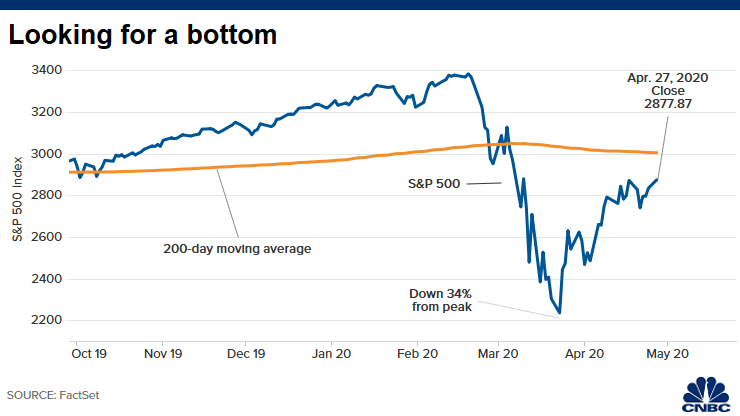

Some people know their history.
• ‘Ducati’ Banknotes Issued To Italian Town Residents (VD)
THE small Italian town of Castellino del Biferno has begun minting its own banknotes in a bid to help residents struggling to make ends meet during the COVID-19 lockdown. The town, which has just 550 residents, is handing the ‘Ducati’ notes out to residents based upon their economic needs. The notes can be spent at local shops for food and necessities, with the shops returning the notes to the town council upon which they are reimbursed for their sales. The denominations of the notes is exactly the same as a Euro, five Ducati is five Euro and 20 Ducati is 20 Euro and so on. The move was agreed to help the elderly, who need the help the most, understand the new currency.
The mayor of Castellino del Biferno received a grant of €5,500 from the government to issue food vouchers to vulnerable families during the pandemic. The town council added its savings and distributed “Ducati” banknotes to over 200 families in town. The mayor of the town hopes the notes will do more than just help people buy everyday items. It’s reported that he sees the crisis money as an opportunity to increase the town’s sense of belonging. To try and do that, the banknotes depict local symbols like the church, the public swimming pool, and also the statue of the Virgin Mary. Castellino del Biferno sits in a mountainous region of southern Italy called Molise. The areas rugged geography and sparse population have so far meant the number of COVID-19 cases is low, although the citizens are still clearly feeling the effects of the Italy-wide lockdown.

Freedom “is a “balanced approach” between positive and negative freedom”..
• Amartya Sen: Economics Needs A Moral Awakening (K.)
Still teaching at Harvard (online these days), Sen is the author of the capability approach to political philosophy, according to which a person is free only to the extent that they are capable to pursue the ends that give value to life. Thus, a lack of access to healthcare is an element of unfreedom, even for someone living in a politically and economically liberal polity. Does the pandemic highlight the importance of capabilities as a constitutive element of freedom? “The European welfare state, including the national health service, is an excellent example of the conception of freedom as capability, including but going well beyond the ‘negative’ conception of liberty as the absence of coercion,” he says, alluding to Isaiah Berlin’s classic taxonomy.
He characterizes the 2008 global crisis as stemming from “an overreliance on ‘negative liberty,’ as the banks were allowed to engage in practices with no social benefit but great potential for destruction, like the insuring of bonds they didn’t own against default.” The ideal, he says, is a “balanced approach” between positive and negative freedom – something understood by the great theoreticians of political economy, from Adam Smith and Condorcet to J.S. Mill, Karl Marx and A.C. Pigou. This approach “was the foundation of the post-war welfare state in Europe.” Sen brings up the example of World War II Britain, where “there was a fear that there would not be enough food and that people would starve.
So the policy of rationing and of controlled prices was implemented. As a result, not only was starvation averted, but undernourishment declined greatly, and severe undernourishment disappeared altogether.” It took the war, he explains, “to make the British government take on the responsibility of feeding the entire British population – though this did not extend to its colonial subjects in India, where there was a major famine during the war years.” He observes that “unfortunately” in the current crisis the “culture of sharing does not seem, so far at least, to be gaining much ground – though the problem is less acute in Europe than it is in the US or India.”

One corrupt faction trying to oust the other.
• Brazil Court OKs Investigating Allegations Against Bolsonaro (R.)
A Supreme Court judge on Monday authorized an investigation of allegations that Brazil’s President Jair Bolsonaro tried to interfere in the work of the country’s federal police force for political motives, the top court said on its website. Justice Celso de Mello gave the federal police 60 days to carry out the investigation requested by Brazil’s chief public prosecutor Augusto Aras following the accusations made by former justice minister Sergio Moro, who resigned on Friday. Moro said Bolsonaro had pressed him to change the chief of the federal police and accused the president of seeking to interfere in investigations that involved family members, to the point of requesting intelligence files.
Bolsonaro called the accusations unfounded, but they have set off the worst political crisis since he took office in January last year and lost the far-right leader valuable allies. The investigation comes at a bad moment for Bolsonaro who is facing criticism for downplaying the gravity of the coronavirus epidemic that has killed over 4,500 people in the country and virtually paralyzed Latin America’s largest economy. Based on the results of the police investigation, the public prosecutor will have to decide whether to press charges against the president or his former minister.
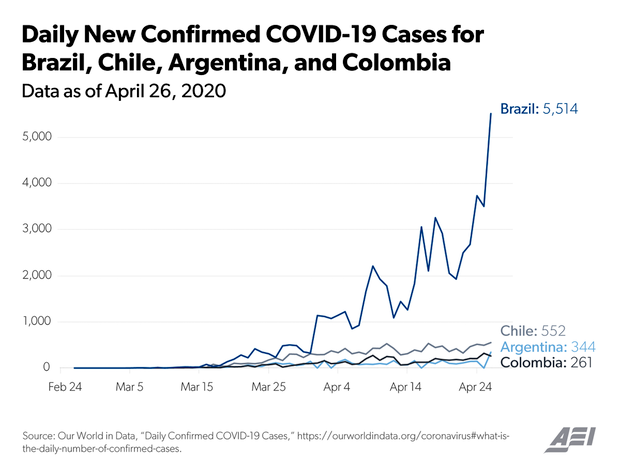

“Mark my words, I think he is going to try to kick back the election somehow, and come up with some rationale why it cannot be held.” It is just the type of thing that a crazed guy in a tightly buttoned raincoat whispers to you on the subway…
• Biden’s Conspiracy Theory Given Credence By Media, Democratic Leaders (Turley)
If there are two words that have become a virtual mantra in the media during the last three years under President Trump, they would be “conspiracy theory.” The conspiracy theory label is a wonderful device to attack political opponents. It not only suggests something is objectively untrue but that the person responsible for it is unhinged and unreliable. When Republican members of Congress suggested two months ago that the coronavirus might have come from a research lab in Wuhan, for instance, it was widely denounced as a conspiracy theory, even though some intelligence officials believe the theory is credible.
Unsurprisingly, it is a term almost exclusively reserved in the media for Trump and his supporters. That was evident this week when the ultimate conspiracy theory was voiced by presumptive Democratic nominee Joe Biden, who warned that he was certain Trump plans to delay the election this fall. It is a conspiracy theory that is utterly without factual or constitutional support, yet his warning was deemed a “prediction” in a recent article by Politico. It has been peddled by various Democratic figures and commentators for months and is all the rage on the internet, even though it should be sold as a set that includes a tin foil hat and an electromagnetic ghost detector.
Biden left little doubt of such a plan by Trump. He said, “Mark my words, I think he is going to try to kick back the election somehow, and come up with some rationale why it cannot be held.” It is just the type of thing that a crazed guy in a tightly buttoned raincoat whispers to you on the subway. But Biden was not finished. If you attended a recent online fundraiser, it probably felt like you could not change your seat as Biden grew uncomfortably close and went on to explain that it was the Postal Service which revealed the conspiracy theory to him.
Biden alleged that the administration is pressuring the Postal Service to make changes in its operations as a condition for coronavirus relief. As Biden explained, “Imagine threatening not to fund the post office. Other than trying to let the word out that he is going to do all he can to make it very hard for people to vote, that is the only way he thinks he can possibly win.” The other way would be that his opponent flees to the desert to live in a bunker and protect his mail and “precious bodily fluids.”

Pretty explicit. You can’t hide him forever, guys.
• Former Neighbor Of Joe Biden’s Accuser Tara Reade Has Come Forward (BI)
In March, when a former aide to Democratic presidential nominee Joe Biden accused the candidate of sexually assaulting her in 1993, two people came forward to say that the woman, Tara Reade, had told them of the incident shortly after it allegedly occurred – her brother, Collin Moulton, and a friend who asked to remain anonymous for fear of retribution. Now two more sources have come forward to corroborate certain details about Reade’s claims. One of them – a former neighbor of Reade’s – has told Insider for the first time, on the record, that Reade disclosed details about the alleged assault to her in the mid-1990s. “This happened, and I know it did because I remember talking about it,” Lynda LaCasse, who lived next door to Reade in the mid-’90s, told Insider.
The other source, Lorraine Sanchez, who worked with Reade in the office of a California state senator in the mid-’90s, told Insider that she recalls Reade complaining at the time that her former boss in Washington, DC, had sexually harassed her, and that she had been fired after raising concerns. In interviews with Insider, The New York Times, The Washington Post, and the politics podcaster Katie Halper – who broke the story of the assault allegations – Reade has said that in the spring or summer of 1993, she was told to meet Biden in a semiprivate corridor to deliver a duffel bag. There, she said, Biden pushed her up against a wall, reached under her skirt, and penetrated her with his fingers. When she resisted his advances, Reade said, Biden expressed annoyance and said, “Aw man, I heard you liked me.” Then, she said, he pointed a finger at her and said, “You’re nothing to me.” After that, she said, he shook her by the shoulders and said, “You’re OK, you’re fine,” before walking away.

• Julian Assange Extradition Hearing Postponed For Up To Six Months (CW)
WikiLeaks founder Julian Assange’s US extradition hearing has been postponed for up to six months after defence and prosecution lawyers agreed it would no longer be in the interests of justice to try the case in May. Assange’s lawyers told the court that, in the midst of the UK’s Covid-19 coronavirus lockdown, they had not been able to meet with their client either in person or over video link to prepare the case. The decision came after Edward Fitzgerald, representing Assange, told the court it had not been possible for Assange’s legal team to take instructions in response to new documents served by US prosecutor Gordon Kromberg.
[..] Observers and journalists dialled in to an hour-long court hearing at Westminster Magistrates’ Court, but frequently had difficulty hearing what the lawyers were saying, even when a court clerk repeated the words of Assange’s defence barrister for those on the conference call. Fitzgerald said the defence team had not been able to gain access to their client, who is being held in Belmarsh Prison, to discuss the case. “Mr Assange is going into battle with his hands tied behind his back,” he said. [..] The government extended coronavirus restrictions on 16 April 2020 for at least another three weeks until 8 May, and even if they were lifted, there would not be enough time to prepare for the hearing, which was scheduled for 18 May.
“It would be impossible to ensure open justice during the lockdown by making provisions for the press and the public to attend, said Fitzgerald. “There would not be time for lawyers to take full and proper instructions from Mr Assange,” he said. Assange’s defence team said in written submissions that solicitors or counsel could not reasonably be expected to sit in close proximity in breach of government guidelines. An attempt by the judge to allow Assange’s lawyers to meet with their client in the cells of Woolwich Crown Court by scheduling an “administrative hearing” on 20 April failed after prison authorities said it would breach the two-metre social distancing rules.
After an intervention by the court, Belmarsh Prison extraordinarily said it was prepared to lift its two-metre distancing rules to allow lawyers to meet Assange on 22 April. But it was not foreseeable that prison cell visits, where multiple people were ordered to travel to prison to congregate in interview rooms in violation of coronavirus distancing requirements, would be lawful, Fitzgerald said in a written submission. [..] The judge said there was space in the court calendar to hear two weeks of the three-week extradition hearing from 20 July. That could be followed by a further week in August. The earliest available date for a full three-week hearing is 2 November. The court adjourned until 4 May to allow Assange’s legal team to take instructions from their client over a preferred date.

We try to run the Automatic Earth on people’s kind donations. Since their revenue has collapsed, ads no longer pay for all you read, and your support is now an integral part of the process.
Thanks for your generosity.

Tonight’s @seanhannity Thread.
.@SidneyPowell1 we are on the verge of the release of more documents that prove @GenFlynn is innocent. They will show he was completely set up and framed by the small group in the upper echelon‘s of the FBI. pic.twitter.com/Hy4P5Ef52r
— Josh Cremeans “DirtyTruth” (@AKA_RealDirty) April 28, 2020

Urgent: ducks on a slide. pic.twitter.com/eL4uZyvXSc
— Carol Roth (@caroljsroth) April 28, 2020

Support the Automatic Earth for your own good.



